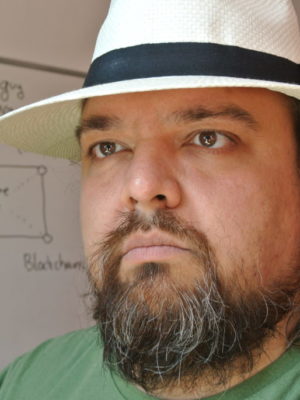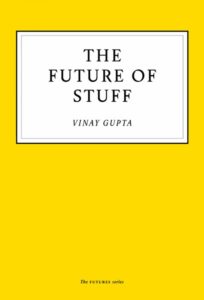From The Future of Stuff
A version of Pooh Bear that does not want honey is barely Pooh Bear. Desire defines him.
We all have our Honey. It is apparently the nature of life to want things. Plants want sun, because sun is sugar, and sugar is energy, and energy is needed to store and duplicate information. To a bee, honey is liquid summer.
Because we do not care to distinguish what is benign from what is malevolent in the marketplace with sufficient discrimination, and do not force the issue by boycott when the truth is not forthcoming, corporate bad actors repeatedly abuse the public trust and face no consequences of note. We lack the social machinery to detect this kind of pervasive abuse and put a stop to it, in much the same way that until the invention of the labour union and universal suffrage we lacked the machinery to rein in abusive employers and our feudal overlords.
A near-exclusive focus on the ‘figure’ of consumer goods to the total neglect of the ‘ground’ is at the heart of our problems reasoning about stuff. It affects us in all areas, from global warming to human rights to public health and product safety. At the heart of all of these problems is the magical stuff illusion: that stuff magically comes into existence when we buy it and magically leaves existence when we throw it away, much like the matter of the Star Trek ‘Holodeck’.
About The Future of Stuff
The Future of Stuff asks what kind of world will we live in when every item of property has a digital trace, when nothing can be lost and everything has a story. Will property and ownership become as fluid as film is today: summoned on demand, dismissed with a swipe? What will this mean for how we buy, rent, share and dispose of stuff? About what our stuff says about us? And how will this impact on us, on manufacturing and supply, and on the planet?
This brief but mighty book is one of five that comprise the first set of FUTURES essays. Each standalone book presents the author’s original vision of a singular aspect of the future which inspires in them hope or reticence, optimism or fear.
Vinay Gupta, CEO of Mattereum (a leading blockchain infrastructure company), has a unique background as a humanitarian designer, energy policy analyst, technologist, and meditation instructor. He coordinated the launch of the Ethereum blockchain in 2015.
This book presents an actionable agenda for getting some control of our world back.
Read the Table of Contents if you would like to know more.
The Store
Two dozen items, elegant, excellent, and affordable (mostly.)
A philosophy in objects.
The Future of…
Each short book in the FUTURES series presents a beautifully-written original future vision by an accomplished writer and/or subject expert. Read individually, these books will inform, entertain and challenge. Collectively, they will inspire readers to imagine what might lie ahead, to figure out how they might like the future to look, and think about how, collectively, we might make the transition from here to there.
Heading
Description
Description
Description
Heading
Description
Heading
Description

Vinay Gupta is a multidisciplinary thinker who has made contributions to fields as diverse as disaster relief, energy policy, and the design of cryptographic applications. He is currently the CEO of Mattereum, a ground-breaking company which focusses on creating digital identities for physical things, as a stepping-stone towards radical breakthroughs in reducing our global environmental footprint.


